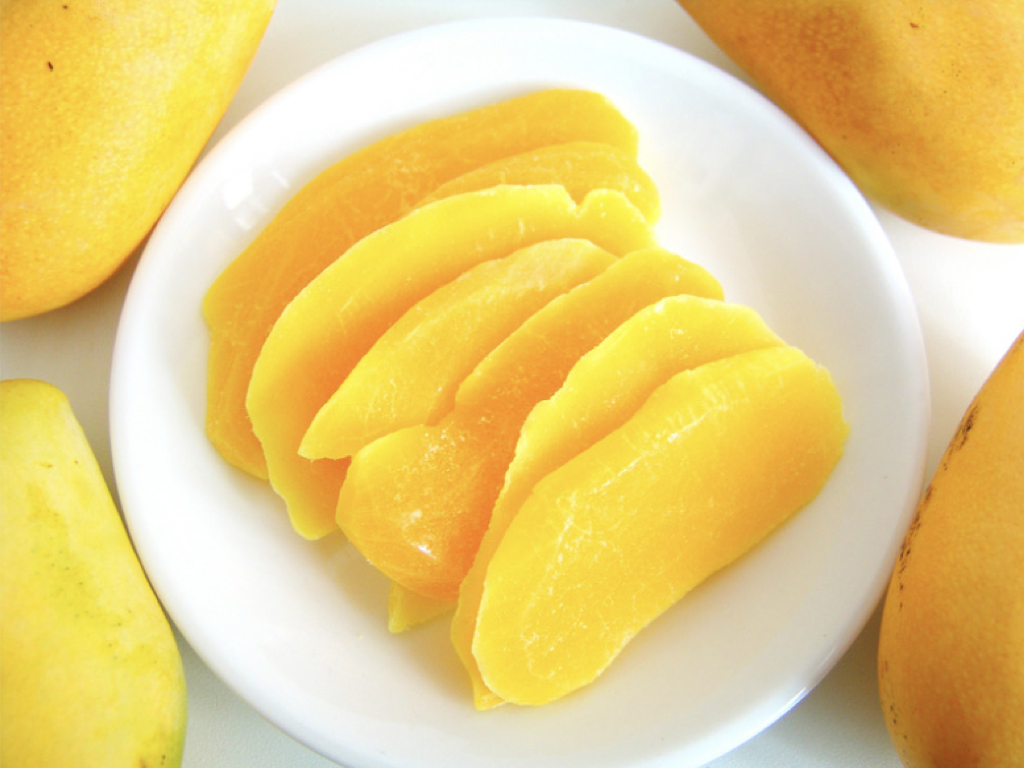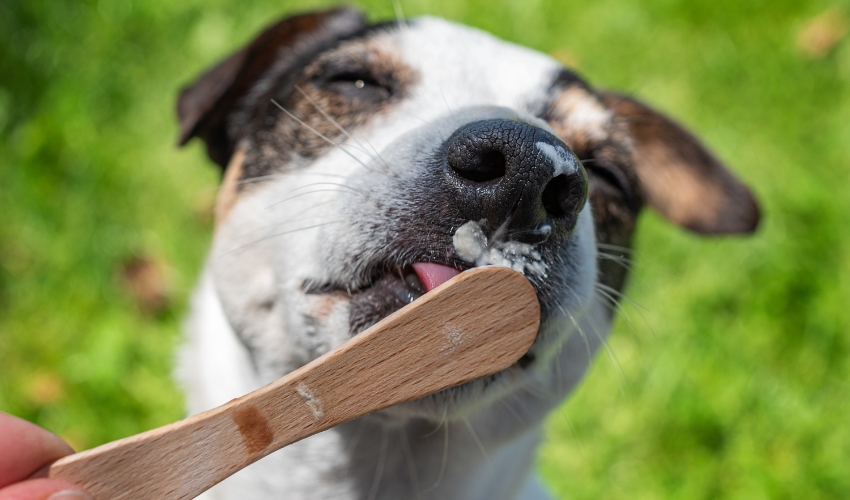There are a lot of myths about dogs and their eating habits, so it’s always good to be aware of what might be true and what’s not. Perhaps you’ve wondered, ‘can dogs eat mango’? The answer is yes! No need to deprive your dogs of this delicious fruit! However, you should remember a few things before you start feeding your dog mangoes.
Benefits of Mangoes for Dogs
Mangoes are tropical fruit rich in vitamins A, B6, C, and E and minerals such as potassium and iron. It’s an excellent source of energy for dogs, with tons of fiber to keep you both full and satisfied after a meal. It’s also a healthy source of the antioxidant beta-carotene that helps protect cells from damage and promotes healthy skin and a strong immune system. In addition, mangoes contain plenty of calcium to help keep your pooch’s bones and teeth strong and healthy. It also contains magnesium, which is essential for many physiological processes in the body and helps keep muscles functioning properly. With all these nutrients, mangoes are an excellent snack for you and your dog.
Giving Your Dog Mango
Before you give your dog mango, make sure to peel it first and remove the pit. While your dog may be able to chew through the skin, it’s much better to remove it first to make it easier to digest. The pit, moreover, is a choking hazard. It can cause digestive issues or even blockage in the digestive tract if it’s too large for your dog to swallow. Another tip is to cut up the mango into small pieces to make it easier for your dog to eat. Keep in mind that larger pieces may be more difficult for them to chew and digest, which can lead to discomfort for your pet.
If your dog seems hesitant to eat the mango at first, try giving it to him bit by bit. Over time, he may become used to the taste and develop a taste for it. Another option is to mix the mango with his favorite dog food or treat to make a tasty new combination. This way, he’ll get to try something new while sticking to his regular diet at the same time.
If your pup isn’t keen on eating the mango on its own, you can offer it along with other fruits and vegetables. This will help him develop a taste for various healthy foods and introduce him to new flavors and scents that may appeal more to him than fresh mango. Make sure to introduce each food individually to avoid possible stomach upset as your dog adjusts to his new diet.
Finally, always give your pet plenty of fresh water during and after mealtimes. This will help keep his digestive system running smoothly and prevent any discomfort caused by indigestion or constipation.
Be sure to monitor your dog closely when they eat mangoes for the first time.
How much mango should you give?

Though mangoes are undeniably nutritious and beneficial for your dog, it’s essential to give them in moderation. Since mangoes are very high in sugar, giving them to your dog too often or in large amounts can lead to weight gain and other health problems. Consider mangoes only as treats, not regular meals.
As a general rule, mangoes should only make up 10% of your dog’s daily calorie intake. 1-2 pieces of fresh mango per meal should be enough to satisfy their appetite and provide essential nutrients. However, if your pooch is large (German Shepherd, Labrador, St. Bernard, and the like), you can give a handful of mango pieces. But remember to keep a close watch on your pup while they’re eating so you can prevent them from overindulging and having an upset stomach. Give them a few pieces at a time and gauge their reaction to determine when they’ve had enough.
Can Mangoes Be Bad For Dogs?
While mangoes are generally a nutritious treat for dogs, there are still potential dangers,, especially when mangoes are given hastily. Aside from being a choking hazard when not prepared properly, mangoes contain high amounts of sugar, which may cause obesity and diabetes in dogs. In addition, they can cause vomiting and diarrhea if they are fed in excess. However, the benefits outweigh the risks when mangoes are correctly prepared and served in moderation.
Another potential danger in mangoes is the high level of acidity which may contribute to stomach ulcers in dogs. However, proper preparation can reduce this risk. Mangoes also contain compounds that may cause allergic reactions in some dogs. These reactions can range from mild irritation to life-threatening conditions like anaphylaxis. In rare cases, these reactions may be fatal if not treated immediately. Finally, mangoes are high in fiber which can cause bowel obstruction if consumed in large volumes.
Try Mangoes for your Dogs
Dogs can eat mangoes. It’s delicious and nutritious, making it a rewarding treat for your dog. And while this tropical fruit still has some potential dangers, it does not mean you should stop feeding your dogs mangoes. Rather, you just need to prepare them well before serving, and that you should give only small amounts to your dog.











